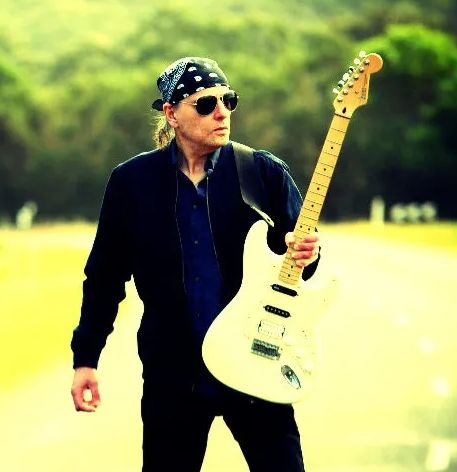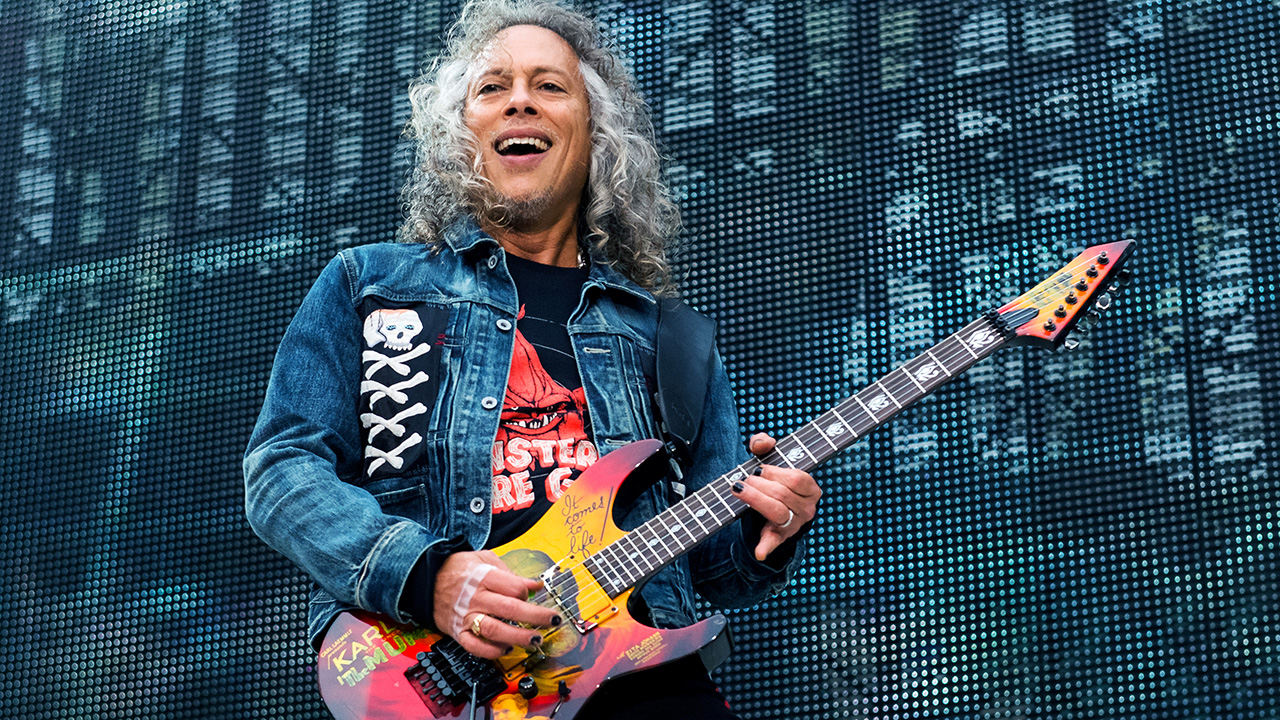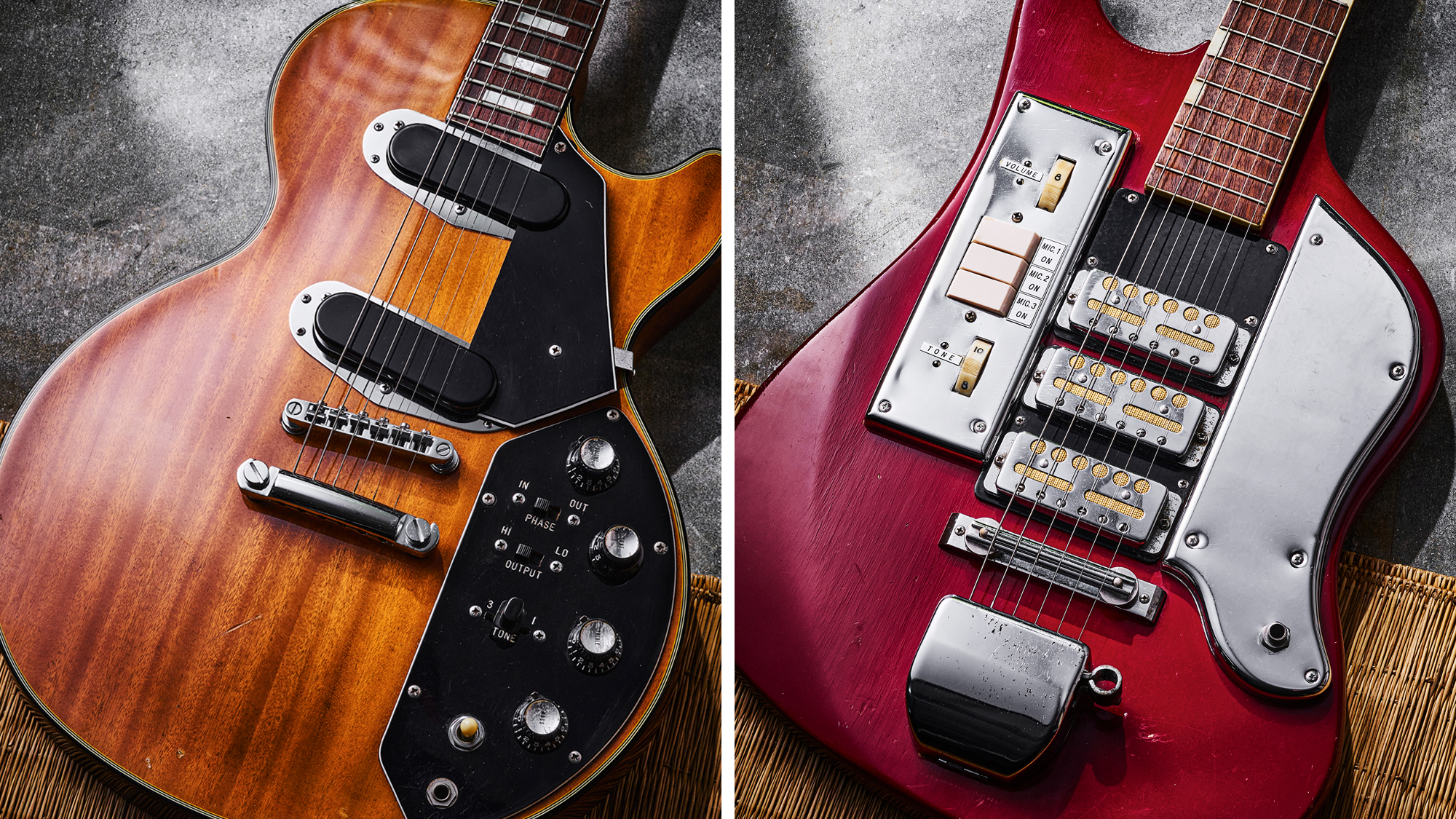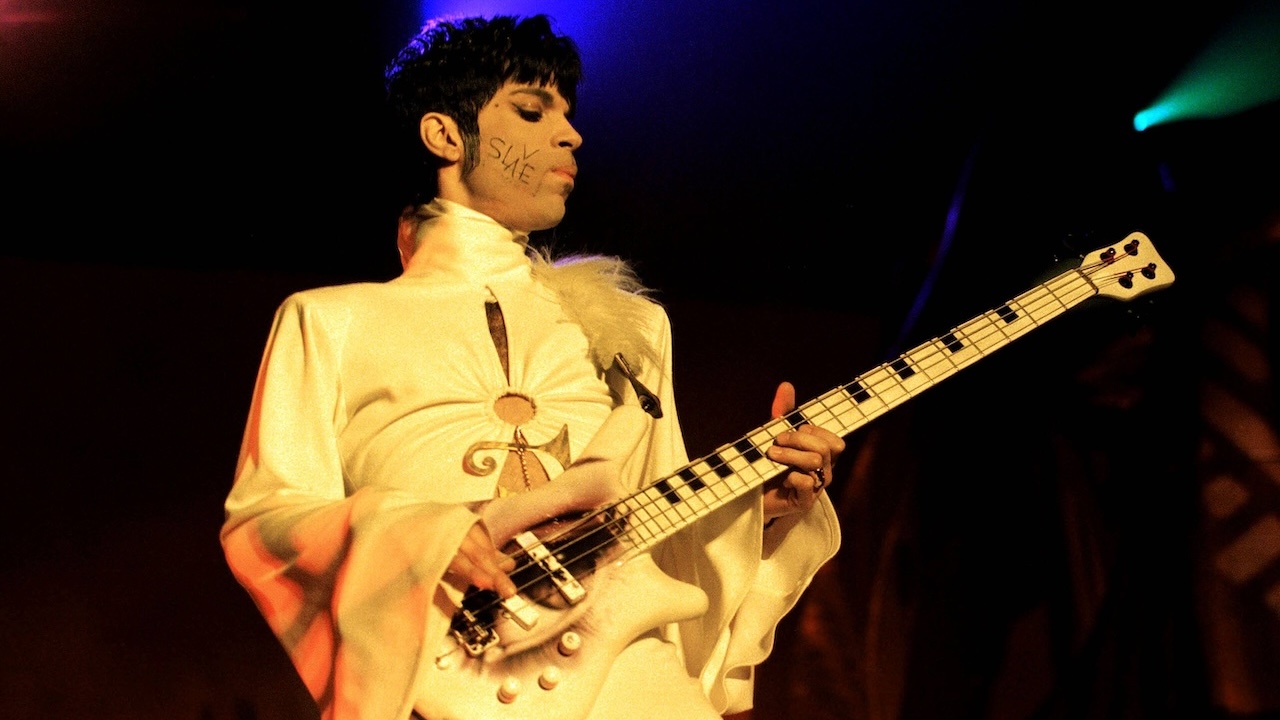Def Leppard: "Steve Clark was a very unique player - he didn't get enough credit for the stuff he was doing"
Joe Elliott and Phil Collen look back at the band's first two albums - On Through The Night and High ‘N’ Dry - and the impact of guitarists Pete Willis and Steve Clark
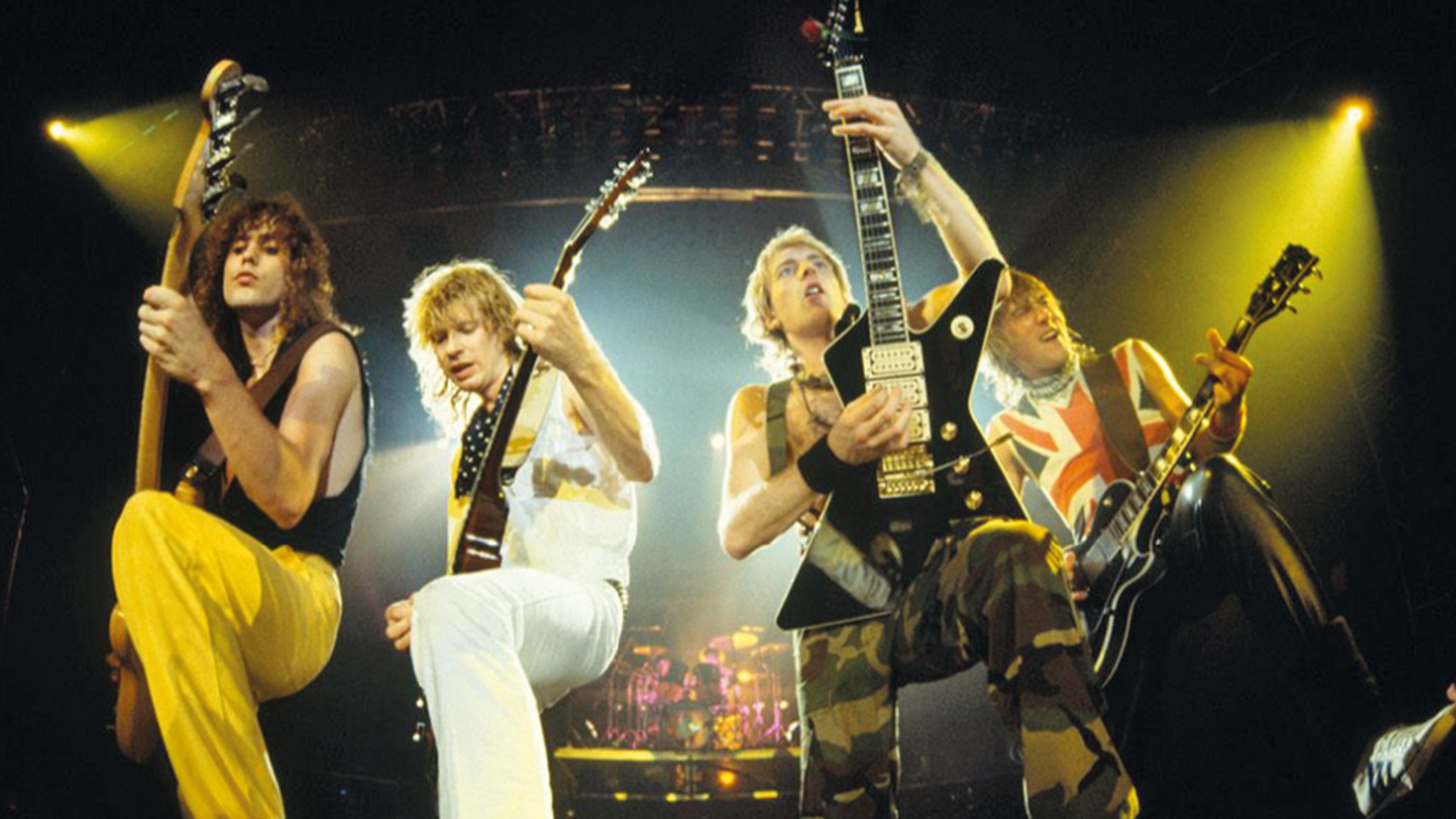
UK five-piece Def Leppard burst out of the New Wave of British Heavy Metal scene in the late '70s and released their debut album, On Through the Night, in 1980. They quickly followed up with 1981’s High ‘n’ Dry.
By the time the band released their commercial breakthrough, Pyromania, in 1983, founding guitarist Pete Willis had been fired and replaced by Phil Collen.
Hysteria, which followed in 1987, brought the band worldwide commercial success and etched them forever into the annals of rock history. Forty years on, the band are enjoying a busy 2020; projects include the recently released box set, The Early Years 79-81.
Spanning five discs, it contains remastered editions of On Through the Night and High ‘n’ Dry, a newly unearthed Live at the Oxford New Theatre, recorded on their 1980 UK tour, along with a collection of B-sides, remixes, further live cuts and more.
We recently caught up with Joe Elliott and Phil Collen to discuss the early years of the band.
The new box set includes an unreleased and much rawer-sounding version of Rock Brigade, originally produced by Nick Tauber. Why wasn’t it ever released?
Joe Elliott: "It was raw in the wrong sense, as to us it sounded flat. It was literally recorded live, but we overdubbed the guitar solo, the lead and backing vocals in a day or two.
Get The Pick Newsletter
All the latest guitar news, interviews, lessons, reviews, deals and more, direct to your inbox!
"We did four songs, Wasted, Rock Brigade, Hello America and Glad I’m Alive. Nick had worked with, oddly enough, a bunch of pop bands previously where he did add a lot of energy to it, and he had also done Whiskey in a Jar by Thin Lizzy, which was the only thing we were aware of at the time that he had done.
We didn’t fight for our corner hard enough during those early sessions
Joe Elliott
"It’s great to say it had a rawness, but it just wasn’t well-produced rawness. It sounded weedy. If you listen to the guitar sound on Wasted, it literally sounds like the might of an acoustic! And that wasn’t who we were. We didn’t fight for our corner hard enough during those early sessions.
"When we later got into the studio with [producer] Tom Allom, one of the few things we said to him was, 'Don’t make us sound weedy.' In comparison to the single that Nick did, some people may argue that On Through the Night is over-produced.
"But down the road people will then say it’s completely raw compared to Hysteria or something like that. Now with hindsight, I’ve no issues at all with it being released because it is a historical document now, so people can agree with what I’ve just said - or disagree."
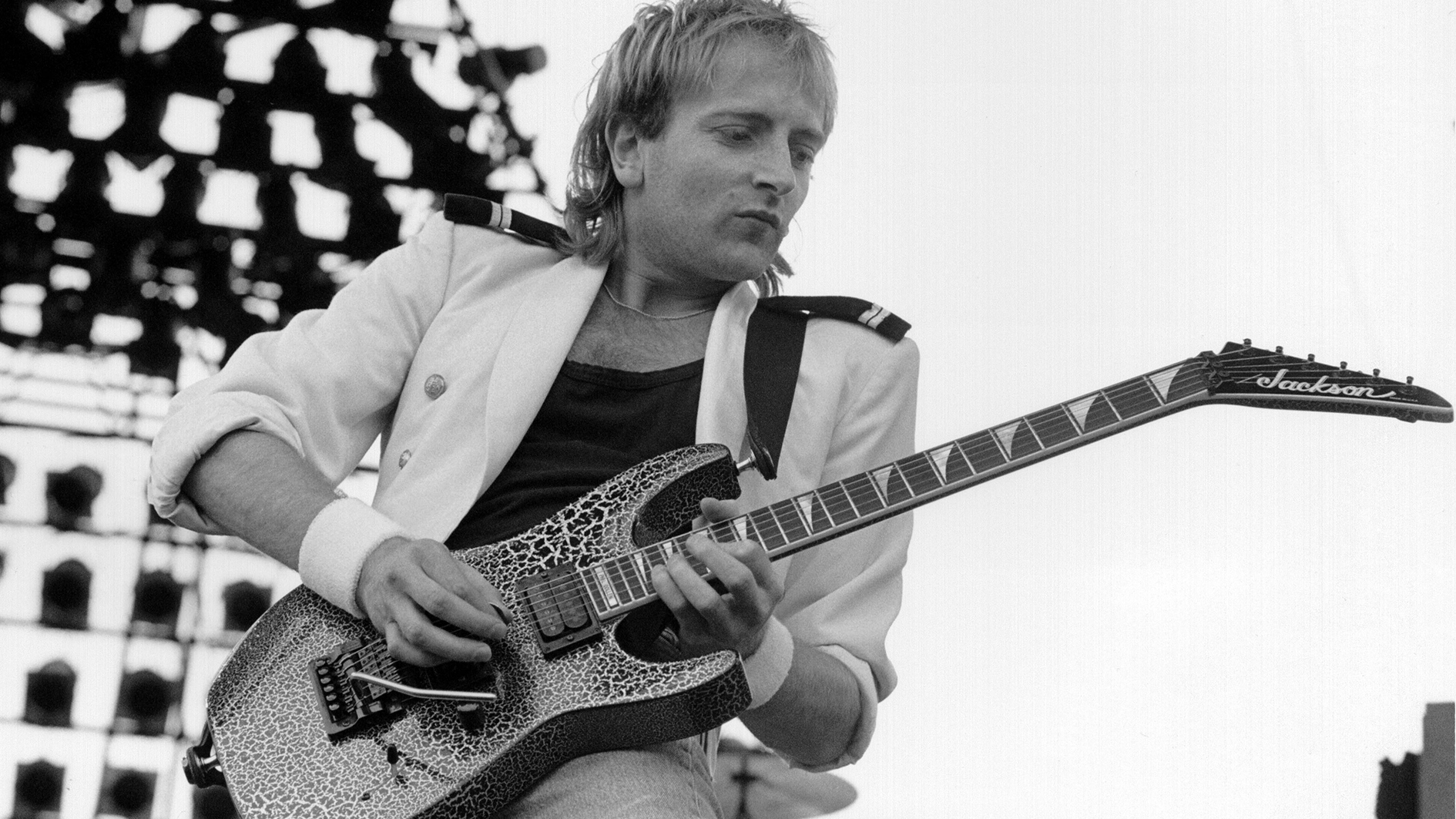
How did the songwriting process work with Steve [Clark] and Pete? Did they come up with riffs that later evolved into songs, or was it more of a collaborative band effort?
Elliott: "We had a rehearsal room in Sheffield and one of them would walk in and say, 'I have this idea' and would play us a riff. We’d listen and then we’d jam it out, flesh the thing out. Like, for example, Answer to the Master - there was this guitar lick run that Pete came up with, and that was all he had.
"But I couldn’t sing over that, so we put together this four-chord, like, turnaround for the verse where I could sing over and then it went back to that bit that Pete came in with, which is the chorus, and I just sung the title over the lick. So whoever came in with an idea, we’d turn it into a song.
"I don’t think we rejected many songs. Steve came in with Wasted and it was pretty much finished musically. I just had to come up with the words and we had a song written in an hour."
Steve and Pete were two very different guitarists stylistically, yet at the same time they seemed to perfectly complement each other.
Even with shredders like Yngwie and the like, there’s a pattern and a thread to their playing. But sometimes you get someone who does things differently. That was Steve [Clark]
Phil Collen
Elliott: "Pete was very schooled and very stoic. His two big heroes were Pat Travers and Michael Schenker; Travers more for the rhythm, songs and riffs and Schenker more for the guitar solos and the style of them. He wasn’t really into the stuff that Steve was into.
"Steve was into Jimmy Page, who was a little more sloppy than the German guitar player, but Steve was extremely artistic in his approach and his songwriting was to die for. He was also into a guitarist called Zal Cleminson from the Sensational Alex Harvey Band and also Alex Lifeson from Rush.
"And both Steve and Pete were big fans of Brian May. Steve was also massively into Brian Robertson but more for the image - the wah pedal, the tight jeans and the perm. Steve just totally ripped that off . But he did like Robertson’s playing too and it did leak into Steve’s playing."
Phil Collen: "Steve’s stuff in particular was a bit more unique. He was a very unique player; I don’t think he gets enough credit for the stuff he was doing. Most guitar players follow a pattern. Even with shredders like Yngwie and the like, there’s a pattern and a thread to their playing. But every now and then you get someone who just does things differently where they’ll bring a different kind of flavor to it. That was Steve"
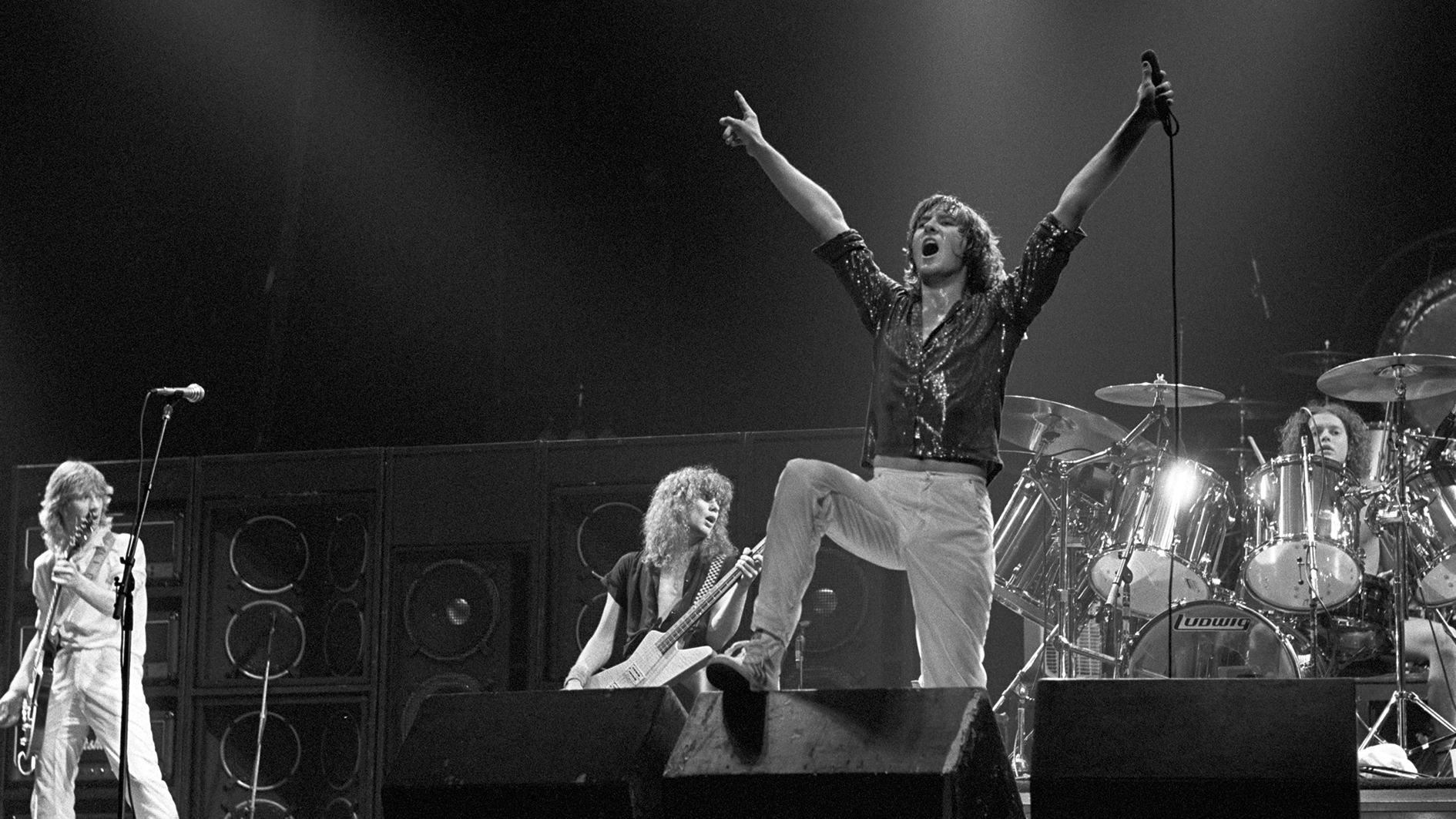
"Pete was a really good player, but it was more of a standard approach like Pat Travers. He’d bring in all this kind of stuff , but you’d have heard it before. It was just an interpretation of it."
That contrast in styles and technique worked tremendously well.
Collen: "There was definitely a dynamic between the two of them. I had first met the guys when I went down to the band’s rehearsals when they were doing the High ‘n’ Dry album. Later, when I first joined the band it was just to play solos.
"Mutt Lange [producer] asked me to play lead guitar. The beds had already been recorded and a lot of the cool rhythm stuff was actually Pete, but Steve had written a lot of it.
"So you had this kind of dual thing going on where Pete was this amazing rhythm player and Steve was this great ideas man."
Do you remember much about the gear they used on those first two albums?
Pete had to have his own thing. He wasn’t just going to pick up a Strat. He wanted something a bit more unique
Joe Elliott
Elliott: "I know that Steve had a 2x12 Marshall combo [amp]while Pete had a Hiwatt at first, then a 4x12. When we got to do On Through the Night, I don’t remember exactly what amps they used. Right up to when we signed the record deal, everybody was still on the same guitars. Steve used to play an Ibanez Les Paul copy and Pete had this green thing that he had made by some guy.
"It was typical of Pete as he wanted something that was just non-standard. He had to have his own thing. He wasn’t just going to pick up a Strat. He wanted something a bit more unique.
"Pete also had a Les Paul Junior and an SG. By the time we had gone into the studio to do High ‘n’ Dry there would have been Marshalls because Mutt would have had a lot to say about that."
Mutt played a major role in helping to shape the band’s sound and identity.
Elliott: "Mutt had in-house amps at the studio that he’d used with AC/DC and City Boy and every other act he had produced at that studio. He was comfortable with that amp. He would twiddle with the dials and filter out some of the distortion. He’d make it more powerful by taking the distortion away because the natural sound was coming through it rather than with a pedal.
"Mutt had this great trick that he used not for the guitars but for the drums. He did it with Rick on High ‘n’ Dry and he did it with Phil Rudd on all three of the AC/DC albums he produced.
"He’d record the drums and then he would put a PA into the big room and he’d play the drums back through the PA and then mic up the PA and re-record the drums back onto the multi-track. When you’re hearing the beginning of For Those About to Rock, for example, that sound is pretty impossible to achieve by just putting a microphone on a drum.
"There was a lot of work that went into that sound, just as a lot of work went into the guitar sound."
Collen: "Credit must go to Mutt because he was constantly pushing everyone. The first Def Leppard album was really cool, and it had real promise. The second one was a step up, but it was still discovering its sound.
Credit must go to Mutt because he was constantly pushing everyone. The first Def Leppard album was really cool, and it had real promise
Phil Collen
"I think with Pyromania it had a different sound you never really heard before. It didn’t sound like anyone else. Whereas bits of High ‘n’ Dry would kind of be reminiscent of AC/DC and even to me, early Aerosmith. When I first heard Bringin’ on the Heartbreak, it kind of reminded me stylistically of Dream On by Aerosmith."
Sticking an instrumental track, Switch 625, on High ‘n’ Dry was a very unusual thing to do at the time.
Elliott: "Initially Mutt wanted me to write some lyrics, but I said that was crazy because it didn’t need anything else. It was a fantastic piece of music without me on it. It had so much going on that, what was I going to do over it except maybe clutter it up?
"I suggested we should drop it on the end of Bringin’ on the Heartbreak and turn it into something like Layla where it is this long song and then it’s got this instrumental section at the end of it."
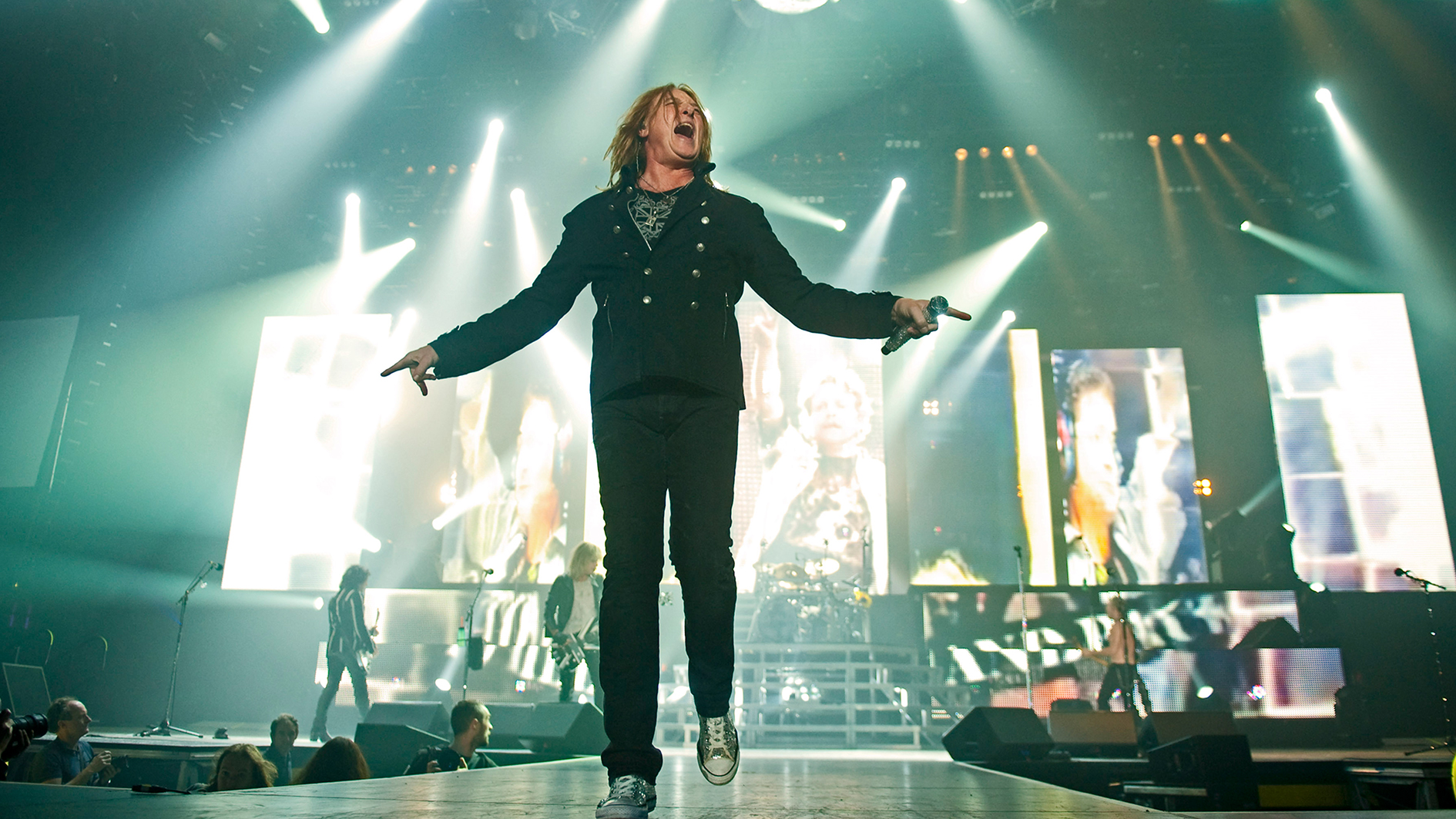
So, is there a new Def Leppard album in the works?
Collen: "We will be doing a new record. I’ve been recording loads of stuff over the last two years as have Joe and Sav, and we will meet up in Dublin before we start rehearsing... to see if we can get the thing on the go."
Joe Matera is an Australian guitarist and music journalist who has spent the past two decades interviewing a who's who of the rock and metal world and written for Guitar World, Total Guitar, Rolling Stone, Goldmine, Sound On Sound, Classic Rock, Metal Hammer and many others. He is also a recording and performing musician and solo artist who has toured Europe on a regular basis and released several well-received albums including instrumental guitar rock outings through various European labels. Roxy Music's Phil Manzanera has called him, "... a great guitarist who knows what an electric guitar should sound like and plays a fluid pleasing style of rock." He's the author of Backstage Pass: The Grit and the Glamour.
“Tom would say, ‘Play your guitar with a car key.’ It was very experimental”: Little Feat's Fred Tackett recalls Tom Waits' left-field approach to guitar playing – and his one-of-a-kind studio sessions
“Seeing friends and heroes of mine having their solos plagiarized broke my heart”: Giacomo Turra used their solos note-for-note for his own viral content. Now the guitarists who had their playing “stolen” are speaking out
